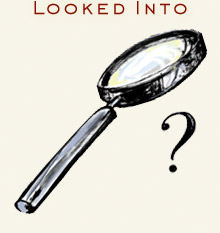Emdashes—Modern Times Between the Lines
The Basics:
About Emdashes | Email us
Ask the Librarians
Best of Emdashes: Hit Parade
A Web Comic: The Wavy Rule
Features & Columns:
Headline Shooter
On the Spot
Looked Into
Sempé Fi: Cover Art


Right up there on stage and live on the radio. From the travelin' preachers at Cybergrass:
Bristol, VA-TN - /BCMA/ During the weekend of July 22-23, the Birthplace of Country Music Alliance, with contributing support from The Crooked Road: Virginia's Heritage Music Trail and Virginia Tourism Corporation, will be hosting Mountain Stage, for a celebratory weekend acknowledging Bristol's designation as "the Birthplace of Country Music." Both shows start at 7:00 PM and admission is $18 for adults, $15 for seniors/students, and children under 12 admitted free. Tickets may be purchased at the Paramount Center for the Arts Box Office or by calling (423) 274-8920.
Mountain Stage will record two radio shows and at least four public television productions. Mountain Stage, a production of West Virginia Public Broadcasting, is a two-hour radio show recorded before a live audience that has established a long tradition of featuring national and international acts in almost every style of music. Mountain Stage can be heard weekly on over 100 Public Radio International affiliates throughout the United States, Voice of America, and XM Satellite Radio. The television program has been carried on over 200 PBS stations nationwide.
...
Artists confirmed for the shows include Roni Stoneman, Darrell Scott, Rambling Jack Elliott, Ollabelle, and Reagan Boggs for Saturday night; with Ralph Stanley, Yonder Mountain String Band, Tim O'Brien, Dale Jett, Odetta, and Chris Thile performing Sunday evening. "Our goal is to work with the local community putting together programs that reflect where country music has come from and some of the directions it is taking," commented Larry Groce, host and artistic director.
...
SUNDAY, JULY 23
Dr. Ralph Stanley and the Clinch Mountain Boys - An influential figure in American music, Ralph Stanley has recorded more than 200 albums since he and his brother Carter founded the Stanley Brothers in 1946. Inspired by the dark emotions of Appalachia, their haunting mountain melodies made them stand apart from other bluegrass bands. When Carter Stanley died in 1966, Ralph carried on, and the Clinch Mountain Boys grew to be one of the most respected outfits in bluegrass. His music had a direct influence on Dwight Yoakam, Emmylou Harris, the late Keith Whitley and Ricky Skaggs. While he has long been revered by folk, bluegrass and country enthusiasts, thanks to the success of the film "O Brother, Where Art Thou?", Stanley has become a star. In 2002, he won Grammys for "Best Country Male Vocalist Performance" and "Album of the Year" (for his part in the O Brother collection). He was profiled in The New Yorker by novelist David Gates [in the August 20 & 27, 2001, issue] and is the central figure in the D. A. Pennebaker/Chris Hegedus documentary "Down From The Mountain." In January, 2000, Stanley became the first artist to be inducted into the Grand Ole Opry in the new millennium. He holds the "Living Legend" award from the Library of Congress and was the first recipient of the "Traditional American Music Award" from the National Endowment for the Humanities. It was only fitting that Stanley was chosen to be the closing act for the 2002 Down From The Mountain Tour, a sold-out series of concerts inspired by the success of the O Brother, Where Art Thou? album.
From Gates' 2001 piece—not online, but available at a Complete New Yorker near you. What, you mean to say you don't have one yet? To read the rest, go git 'er.
Ever since the death of Bill Monroe, the putative father of bluegrass, in 1996, Ralph Stanley has been the supreme icon of authenticity in American vernacular music. He is neither the last nor the oldest ofthe mountain-music patriarchs: Earl Scruggs, who is the prototypical bluegrass banjo player,and served as an early model for Stanley, has just released his first album since 1984, “Earl Scruggs and Friends.†But Scruggs hasn’t performed much in the past quarter century; Stanley, who is slightly younger, continues to do more than a hundred shows a year. Even when he was in his twenties, Stanley’s voice—hard, piercing, with a touch of raspiness—made him sound like a scary old man. Today, he sounds even scarier, and he has begun appealing to an audience far beyond the usual bluegrass circuit of summer festivals, college-town coffeehouses, and school and firehouse gigs throughout the rural South.




Comments
I recently saw Ralph and the Boys at Stuy High as part of the River to River Festival. Ralph’s showing signs of wear and tear (as I recall, he talked about his relationship with “Mr. Arthur Itis”) but his singing style still retained some of its distinguishing characteristics, and The Boys all played very well.